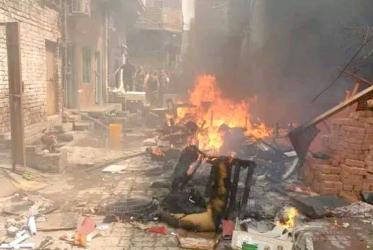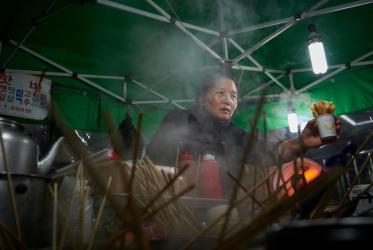Displaying 1 - 20 of 72
WCC to share key insights at World Social Forum
09 February 2024
Embracing spirituality: a global response to climate challenges
17 November 2023
Migrants in Argentina find listening ears and open hearts
04 November 2022
Lighting the lives of many
28 June 2022
WCC stands in solidarity with victims of major flood in Brazil
17 February 2022
Climate crisis fuels existing water injustice
27 October 2021
New student body at Bossey Ecumenical Institute “a source of joy”
14 September 2020

















